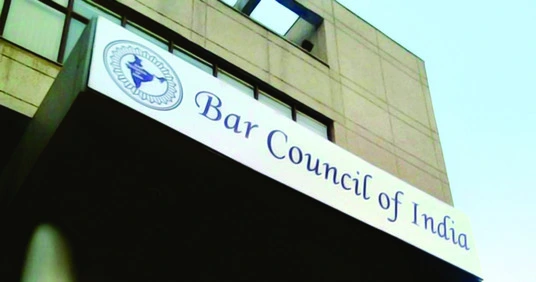By Dr Swati Jindal Garg
The Bar Council of India (BCI) had sought to raise the statutory enrolment fee for advocates from Rs 750 to Rs 25,000 for general category candidates, citing severe financial constraints and inflation. However, the Supreme Court has declined to intervene, emphasizing that legislative amendments fall under the purview of the Parliament, not the judiciary.
Advocacy is a cornerstone of justice and societal progress. Yet, the cost of becoming an advocate is increasingly contentious, with the BCI’s proposal to significantly raise enrollment fees sparking intense debate. While the BCI argues this is necessary for financial sustainability, critics warn it could perpetuate systemic inequities, particularly for marginalized communities.
Background: A legislative standoff
The issue stems from a 2024 Supreme Court judgment that capped enrolment fees at Rs 750 for general candidates and Rs 125 for SC/ST candidates under the Advocates Act, 1961. The Court ruled that charging fees beyond these limits was unconstitutional, highlighting concerns of economic hardship and systemic discrimination against marginalized groups.
The BCI has since approached the Court, arguing that inflation and stagnant fees since 1993 have left bar councils underfunded, jeopardizing their ability to support legal professionals. Despite this, the Supreme Court declined to entertain the BCI’s plea, reiterating that it lacks the authority to direct legislative amendments.
Key arguments from both sides
• BCI’s Stance:
The Council proposed increasing fees to Rs 25,000 for general category candidates and Rs 10,000 for SC/ST candidates, citing a 7,700 percent rise in inflation since 1960. It argued that low fees undermine bar councils’ capacity to manage administrative responsibilities and provide necessary services to advocates.
• Supreme Court’s position:
Justice PS Narasimha, speaking for the bench, criticized the BCI for undermining its authority by seeking judicial intervention. The Court advised the Council to strengthen its negotiations with the Union government instead of turning to the judiciary.
Past Supreme Court observations
In its 2024 judgment, the Supreme Court underscored that:
1. The right to practice law is a fundamental right under Article 19(1)(g) of the Constitution.
2. Excessive fees violate the principle of substantive equality and create barriers to entry for economically weaker and marginalized communities.
3. State bar councils cannot impose additional charges like library funds, identity card fees, or welfare contributions that inflate the total cost of enrolment.
“The Advocates Act caps fees at Rs 750; additional levies are unconstitutional,”—2024 Supreme Court Judgment
The Court also noted that exorbitant enrolment fees, particularly in states like Odisha (Rs 42,000) and Maharashtra (Rs 15,000), disproportionately impact first-generation advocates and those from marginalized communities. It called for systemic changes to ensure inclusivity in the legal profession.
BCI’s next steps and legislative challenges
With the Supreme Court declining to act, the onus now falls on the BCI to lobby the legislature for an amendment to the Advocates Act. However, given the resistance to raising fees, achieving consensus may prove challenging.
The debate over enrolment fees highlights a deeper issue: balancing financial sustainability for regulatory bodies with accessibility and fairness for aspiring advocates. While the BCI argues that higher fees are necessary, critics caution against creating economic barriers that could exclude marginalized voices from the legal profession.
—The author is an Advocate-on-Record practising in the Supreme Court, Delhi High Court and all district courts and tribunals in Delhi


